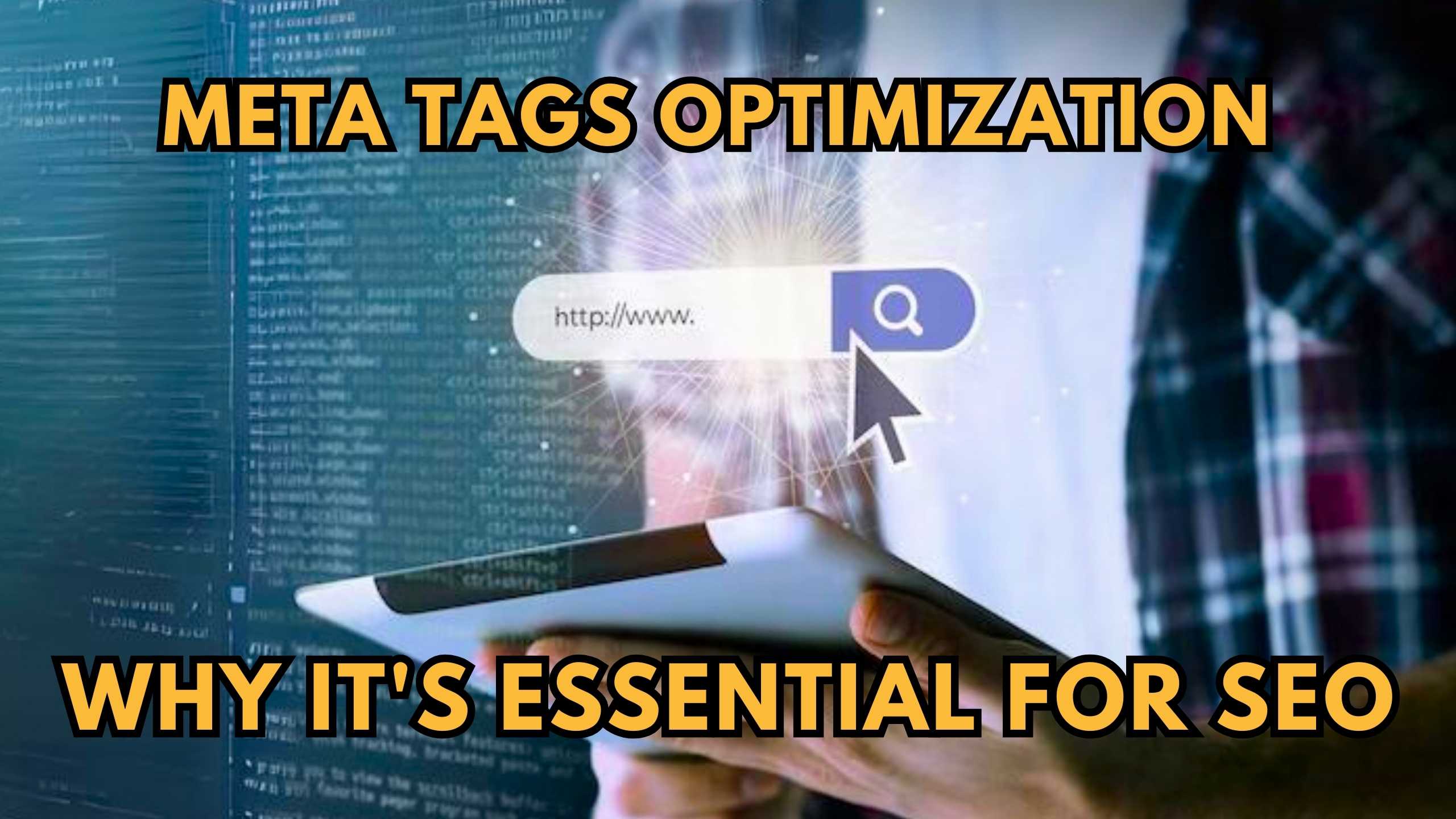Meta Tags Optimization: Why It’s Essential for SEO
- WebOps Platforms Bug Tracking & Feedback Software Web Development & Design


Meta Tags Optimization: Why It’s Essential for SEO
In the ever-evolving landscape of search engine optimization (SEO), meta tags play a crucial role in enhancing a website’s visibility and conveying essential information to search engines. Let’s explore the significance of meta tags optimization and how it contributes to the overall success of your SEO strategy.
Understanding Meta Tags
1. Title Tags
Title tags, the most critical meta tags, provide a concise and accurate description of a page’s content. For instance, if you’re managing an e-commerce website selling handmade jewelry, a well-optimized title tag like “Unique Handcrafted Jewelry – Artisan Designs for Every Occasion” not only informs users but also aligns with relevant search queries.
2. Meta Descriptions
Meta descriptions offer a brief summary of a page’s content and serve as a snippet in search engine results. Imagine you’re optimizing a blog post about “10 Tips for Sustainable Living.” Crafting a meta description that highlights key points, such as “Discover eco-friendly living with our expert tips on sustainable practices,” entices users to click, improving click-through rates.
3. Header Tags
While not traditional meta tags, header tags (H1, H2, H3, etc.) are vital for structuring content. For a travel blog page, using an H1 tag like “Explore Hidden Gems Around the World” signals search engines about the primary topic. Subsequent header tags can further organize content, enhancing both user experience and SEO.
Importance of Meta Tags Optimization
1. Improved Click-Through Rates (CTR)
Optimizing title tags and meta descriptions enhances the appeal of your content in search results. A well-crafted meta description serves as a marketing snippet, compelling users to click and explore your page. This increased CTR sends positive signals to search engines, potentially improving your rankings.
2. Enhanced Search Engine Visibility
Effectively utilizing meta tags ensures that search engines understand the context and relevance of your content. This clarity increases the likelihood of your pages appearing in relevant search queries, expanding your website’s visibility and attracting a targeted audience.
3. User Engagement and Satisfaction
Well-optimized meta tags contribute to a positive user experience. When users find accurate and compelling information in search results, they are more likely to engage with your content, spend more time on your site, and potentially convert. This user satisfaction indirectly influences your SEO performance.
Strategic Meta Tags Optimization
1. Keyword Research and Integration
Conduct thorough keyword research to identify relevant terms for your content. Integrate these keywords naturally into your title tags and meta descriptions. For example, if you’re optimizing a cooking blog, include terms like “easy recipes” or “quick meal ideas” to align with user search intent.
2. Unique and Descriptive Tags
Craft unique and descriptive meta tags for each page on your website. Avoid duplicate titles and descriptions, as this can confuse search engines and hinder the accurate representation of your content. Tailor meta tags to reflect the specific content and value offered on each page.
3. Regular Monitoring and Updating
SEO is dynamic, and user behavior evolves. Regularly monitor the performance of your meta tags through tools like Google Search Console. Analyze click-through rates and adjust your meta tags to align with changing trends or user preferences.
The Power of Meta Tags for SEO Success
Imagine you’re managing a blog about digital marketing. By optimizing meta tags with relevant keywords and a compelling description like “Master Digital Marketing Strategies for Business Growth,” you not only attract professionals seeking insights but also signal to search engines the primary focus of your content.
Now, let’s address the query, “Why optimize meta tags?” Consider a scenario where you run an online store selling fitness equipment. Optimizing meta tags ensures that each product page has a clear and concise title tag and meta description, making it more likely to appear in searches related to fitness gear. This increased visibility can drive targeted traffic to your online store, ultimately leading to higher conversion rates.
In addition to the meta tags optimization guide, here are five relevant SaaS products that can further elevate your SEO efforts:
- Semrush: Conduct in-depth keyword research, track your website’s rankings, and gain insights into your competitors’ strategies, enhancing your overall SEO strategy.
- Ahrefs: Explore backlink opportunities, monitor your site’s health, and analyze competitor performance, providing essential data for optimizing your SEO efforts.
- Yoast: An essential WordPress plugin that simplifies on-page SEO, guiding you in optimizing content for search engines and improving overall website performance.
- Moz: Access a suite of SEO tools that includes site audits, keyword research, and link building capabilities, helping you optimize various aspects of your online presence.
- Grammarly: Ensure your content is error-free and engaging, contributing to a positive user experience and indirectly impacting your SEO performance.
Conclusion
In conclusion, meta tags optimization is a fundamental aspect of a successful SEO strategy. By understanding the role of title tags, meta descriptions, and header tags, and strategically optimizing them for improved visibility and user engagement, businesses can enhance their online presence and attract a relevant audience.
Unlock SEO Success with Subscribed.fyi!
Ready to take your SEO efforts to the next level? Sign up for free at Subscribed.fyi to access exclusive deals on a variety of SaaS tools, including those tailored to boost your SEO performance. Manage all your subscriptions in one place and gain insights to make informed decisions about your SaaS stack. Start your journey to unlocking savings and streamlining your SEO experience today!
Relevant Links:








